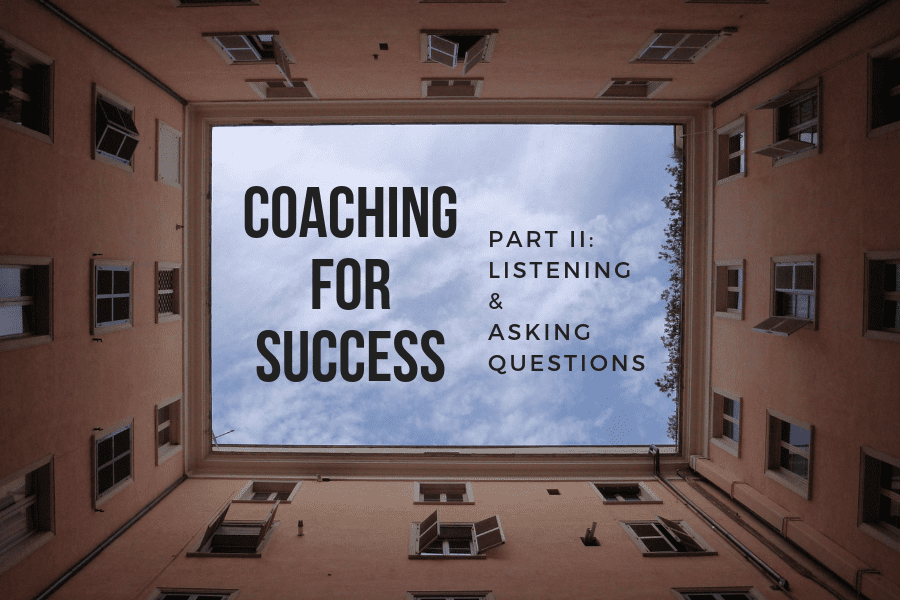Last time we explored how to tell if an employee is “coachable,” and what a coaching relationship with them looks like. This week, we’ll talk about listening and asking questions to get the most out of a coaching conversation with your staff member.
- Performance = Potential + Effort – Obstacles. This simple equation is ideal to keep in mind when coaching someone. Performance comprises the overall goals or outcomes you and/or your employee desires. Potential is the sum of a person’s strengths, qualities, knowledge, experience, motivation, resources, etc. Effort is what the person does to achieve their performance goals. With coaching, you can help them enhance their efforts in terms of efficiency, quality, impact, etc., as well as explore time or task management improvements. Obstacles are what get in the way of achieving optimal performance, given a person’s potential. Your role as a coach is to work with your employee to: a) define what ideal performance looks like, b) inventory their potential, c) optimize their efforts, and c) help them identify and remove obstacles.
- Listen on multiple levels. Great leaders, like great coaches, listen to multiple things on multiple levels. They listen for what their employees say, what they don’t say, their tone, pace, energy, choice of words, emotional state, open and hidden desires, repetitions, nonverbal signals, hesitations, absolutes, contradictions, patterns, and silences. This type of listening is not something we’re generally taught, and it takes practice to learn to listen at these different levels. To develop your “ear” for listening on multiple levels, focus on one area of listening in everyday conversation (e.g., emotions or facial expressions) until it becomes automatic, then add another level, and so on.
- Make asking questions a habit. Most of those in management roles are accustomed to telling, not asking. However, asking questions is possibly the most powerful tool in your leadership toolkit. But to coach without mentoring, consulting, or advising can be a challenging skill to master. Practice by making questions your first “move” in any conversation, not just when you’re coaching. In most situations, you will learn more and be more credible if you ask first, tell later. Practice asking short, simple, open-ended questions.Do not nest or stack questions—i.e., asking more than one question at once, and/or asking the same question a different way before the person has a chance to respond. Also note that “Did you try…?” “Have you considered…?” or “Would you be interested in knowing…?” do not qualify as coaching questions. Instead, try questions like, “What’s most important to you about this situation?” or “If this problem no longer existed, what would you be seeing?” or “What’s missing that would help you resolve this problem?”
How have listening and asking questions impacted your coaching sessions with your employee? Or was there a time in your past when the way a supervisor listened (or didn’t listen) to you made a big difference in your performance? Let us know in the comments.
